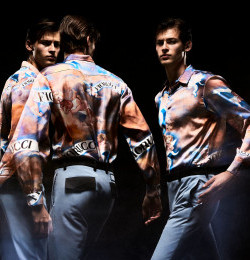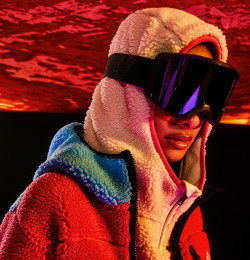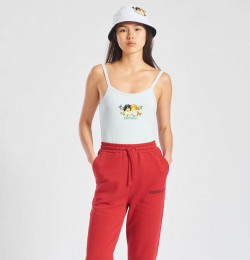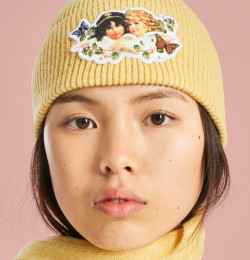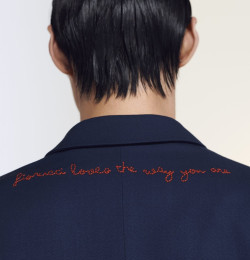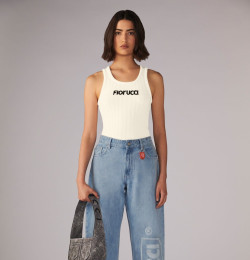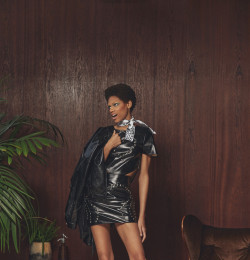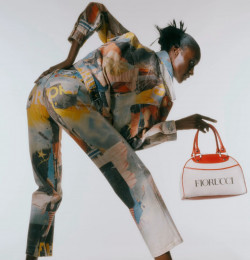
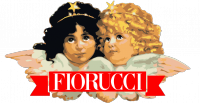
Fiorucci
20129 Milano
Italy
About
founded by
Elio Fiorucci
belongs to
Edwin
about
Fiorucci is an Italian fashion label founded by Elio Fiorucci in 1967. The first shop exposed Milan to the styles of Swinging London and American classics such as the T-shirt and jeans.
In 1968 Fiorucci looked East for inspiration, buying cheap T-shirts from India, and turning rice sacks into bags. Two years later the company set up its own manufacturing plant, and adopted the "two angels" logo created by Italo Lupi, which is still the icon and symbol of the brand�s identity.
In the San Donato�s large premises the company gathers a large group of globetrotting talents, to feed the innovative product research based on far away travels, inventions and experiments.
With the industrial production, the international distribution follows:in Europe, South America and Japan.
In 1974 the company opened a huge new store on Via Torino in Milan, expanding beyond fashion to offer books, furniture and music. The new shop also had a performance area, vintage clothing market, and restaurant, and was financed by an investment from the Standa department stores, part of the Montedison group. Meanwhile the label introduced the monokini and thong from Brazil. A local beauty photographed on Ipanema�s beach with, indeed, very 'little'on, smi- les from Fiorucci posters and stickers. But the picture is considered too 'hot'for the times and it�s 'censured'and the offending items are confiscated. For Fiorucci is the beginning of an uninhibited and provoking communication style that continues today.
Glass beads from New Mexico were another hit. In 1975 the company opened its first store overseas, on the Kings Road in London, and launched a children's collection called Fioruccino.
It brought Afghan coats to the mass market, and popularised the leopard-skin prints first created by Elsa Schiaparelli two decades before.
Fiorucci opens its New York�s store, on 59th street, next to Bloomingdale's.The place quickly becomes a cult location for the big and bold artistic community,
from Madonna to Basquiat,from Grace Jones to Brooke Shield,Bianca Jagger,Margaux Hemingway or Marisa Berenson ...
Especially Andy Warhol that, not only uses the premises to launch his Interview magazine, but will also quote repeatedly Fiorucci in the book: THE ANDY WARHOL DIARIES by Pat Hackett, edited in Italy by De Agostini,in 1989.
Meanwhile, the company continued to bring new products to market, including a collection made from DuPont's new Tyvek fabric, and velvet slippers from China. In 1978 they were the first fashion house to license their name for a collection of sunglasses, whilst in 1981 a Disney licence led to a highly successful range of clothes emlblazoned with Mickey Mouse. Ever on the pulse of the times, Fiorucci sponsored the reunion of Simon and Garfunkel in The Concert in Central Park on 19 September 1981, attended by 400,000 people or more, and on the bill for their birthday party in 1983 was a then-unknown Madonna. In 1982 the company launched the first stretch jeans with Lycra, and the success of the 5-pocket "Safety" jeans was recognised three years later in a licensing deal with Wrangler Jeans.
The company expanded rapidly after 1978, launching new stores across the US, Europe and Asia. In 1981 Benetton bought Montedison's 50% stake in Fiorucci, which was reduced to 33.3% in 1986 when Elio Fiorucci brought in Iranian businessman Massimo Aki Nuhi (Akinouhi) as a third partner via his holding company Aknofin. Benetton sold their remaining stake to Fiorucci and Aki Nuhi in August 1987. Despite thriving sales, the company was dogged by poor management and had had to close the New York store in 1984. Fiorucci closed down the rest of the US retail locations in 1988 after a franchise dispute, moving instead to a wholesale strategy. The company went into administration in April 1989 following a dispute over the strategic direction of the firm that had seen Elio offer to buy out Aki Nuhi.
The company was rescued by the Tacchella brothers of Italian jeans company Carrera S.p.A., who sold on the company to Japanese jeans group Edwin Co., Ltd for 45bn lire (~US$41m) in 1990. Founded and guided by Shuji Tsunemi, Edwin International Co. will adopt a new strategy based on product diversification through a number of licenses in Japan but also in Europe, Asia and America. Respecting the brand�s origins and identity, all the design, image making and communications remain in Milan, also as the headquarters for the European Master license.
Originally Edwin planned to launch five stores in key cities like London, but although they signed an initial deal on 4 June 1990 that was ratified that October, Edwin did not gain control of the Fiorucci assets until May 1992. In fact they would later lose the rights to the Fiorucci name in Canada on the grounds of disuse. However, one of Edwin's first acts was a deal with Coles Myer that would see 68 Fiorucci concessions in stores across Australia. They opened a new store in Piazza San Babila, Milan in early 1993, that included a variety of branded boutiques. It took them longer to get things going in North America, after a 1993 deal with Mary Ann Wheaton of Wheaton International fell through. In 1995 they licensed the rights for eyewear in the US to Swan International Optical, and then opened a US office in September 1997. However, the strategy of their licensee, Stephen Budd, to sell the brand into US department stores didn't work out so in 1999 they announced a plan to open a New York store once again. The initial plan was to open in time for Christmas 1999, but the store on lower Broadway finally opened its doors in June 2001.
Meanwhile the brand continued to thrive in Europe, and regained some of its former notoriety in 1995 with a poster campaign for its jeans featuring a naked woman's buttocks and pink furry handcuffs, which became instant bestsellers. In 1999 it launched a successful perfume, followed by a second, Fiorucci Loves You, in 2001, and "Miss Fiorucci" makeup in 2003. Edwin have been aggressively expanding the brand throughout Asia, from Seoul to Tokyo and China.
Although Elio Fiorucci retained creative control during the Edwin era, they are protective of the Fiorucci trademarks, and have taken legal action against H&M in the US when Elio designed their Poolside line. He has also set up a brand of his own called Love Therapy, and designed for Agent Provocateur.
